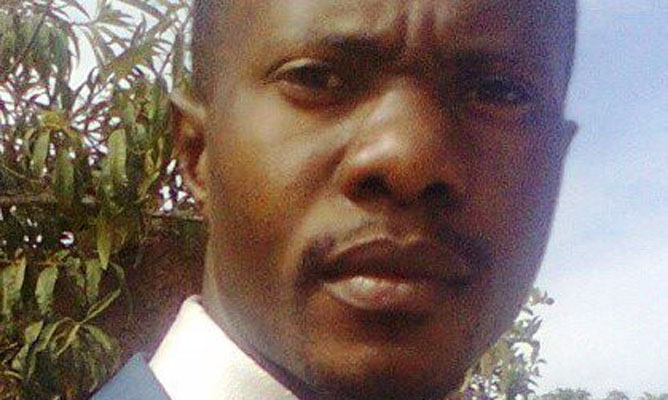
A TERRIBLE thing happened a few days ago in our fellow African nation of Cameroon in Bonaberi. The incident could easily pass for the saddest story of the year so far. It dragged me back to a matter I had delved into a fortnight ago: The prickly issue of the death penalty currently raging before the highest court on constitutional matters.
But first, let me recount the sad Cameroonian story: It is reported that two young boys aged 14 were playing football in the street with other children on January 12, 2016. The two boys, David and Timothe, had been friends since their families became neighbours in 2011. While playing, David kicked a ferocious shot which hit Timothe in the neck and he fell down. All attempts to revive Timothe by his playmates failed. He was rushed to a local hospital where he died two hours later. His friend, it is reported, was devastated. He was consumed with guilt. The boy’s parents were terribly sorry to the deceased boy’s mother.
About a week after Timothe’s death, on Tuesday January 19, the deceased boy’s mother, who had been comforting the poor traumatised David, who until then was blaming himself for causing his friend’s death, called him and asked him to go and buy some drinks for her. The innocent child went and bought the drinks, brought them to the woman, who took a glass from her cupboard, and served the boy. The child drank, thanked her and went to his house. Ten minutes later the boy started writhing in agony holding his belly. Next, there was a mixture of blood and foam coming out of his mouth and nostrils. He only managed to say his late friend’s mother had given him a soft drink. He died before reaching hospital. While the mob gathered around the woman, she reportedly spat on the floor and said: “An eye for an eye, a tooth for a tooth.” The woman now awaits trial for murder in the first degree. The angry mob had to be restrained.
Now, legally, murder is the unlawful and intentional killing of a human being. Those two elements (unlawfulness and intention) are critical in proving that murder took place. There has to be unlawfulness and intention. The case from Cameroon fulfils both elements: There was unlawfulness and evil intention. No wonder one social commentator from the West African nation described the incident as “another level of human evil”. And the question that began playing a fandango in my mind is: Should we totally do away with the death penalty, as some have advocated? Shouldn’t the death penalty be reserved for cases in aggravating circumstances like this? According to section 48(2) of the new Constitution, “A law may permit the death penalty to be imposed only on a person convicted of murder committed in aggravating circumstances.” The fight currently before the court is to outrightly do away with the death penalty.
We must be clear: It’s not every murder case that calls for the death penalty. In fact, as captured in the supreme law, it should “be imposed only on a person convicted of murder committed in aggravating circumstances”. A person may die resulting from a public brawl. A person may be killed in a road accident due to a driver’s negligence, but this is hardly the place for applying the death penalty. Admittedly, the death penalty is not an easy sentence to pass, but I honestly wonder: Why would someone, who does not value human life, expect to have their own life spared? Why should someone, who kills with a necessary evil mind want to be spared? One lecturer, who taught me, would bluntly say: “Why would you want to live if you kill another person?” Surely, this is a logical question. When someone kills with the necessary state of mind, they show disdain and contempt for the sanctity of human life; they have played God. Such persons (who kill with intention), in my view, are the apt candidates for capital punishment.
Doing away outrightly with the death penalty is actually endangering the very society, which the courts should be protecting. We do not even have to look further than our neighbours in South Africa, where the death penalty has been abolished. The police would rather react swiftly to a case of domestic violence than they are likely to react to a murder taking place before their eyes. People are wantonly killed in South Africa and it would appear the revered sanctity of human life does not exist. When one fully knows the consequence of wilfully taking the life of another, they would think twice before hacking others to death. Just like the heartless Cameroonian woman, I subscribe to the reservation of the death penalty for such extreme cases where people totally disregard the greatest gift given to mankind
Abolishing capital punishment would be to open floodgates to anarchy and lawlessness in society.
- Chamisa under fire over US$120K donation
- Mavhunga puts DeMbare into Chibuku quarterfinals
- Pension funds bet on Cabora Bassa oilfields
- Councils defy govt fire tender directive
Keep Reading
lLearnmore Zuze is a legal researcher, author and media analyst. He writes here in his own capacity. E-mail:[email protected]












